The full text of the interview with Ivaylo Kalfin
Adelina Marini, October 7, 2009
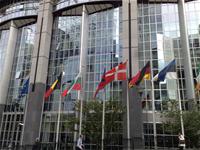 euinside: I would, firstly, like us to talk about the energy projects in Bulgaria. There was a lot of talking before the elections and now, all of a sudden it appeared that on all projects that Bulgaria has been negotiating on, will be started anew. How would you comment on that?
euinside: I would, firstly, like us to talk about the energy projects in Bulgaria. There was a lot of talking before the elections and now, all of a sudden it appeared that on all projects that Bulgaria has been negotiating on, will be started anew. How would you comment on that?
IVAYLO KALFIN: Before the elections there was work, now there is talking. This is the difference (he is laughing). It it normal for a new government so as to understand the situation, to review what has been done so far. But it is not normal the priorities of the nation to be changed constantly but, of course, no one can oblige the government to do something, especially when we're talking about long-term projects which cannot be completed in 3 or 4 years. Likewise no one can oblige the new government to be engaged with the decisions of the previous cabinet. So, it is normal the government to review and, if it wants, to organise a public discussion with experts about the effectiveness of these energy projects.
However, I'm more worried of the fact that the talking started before the discussion. Even before the ministers and the prime minister got aware of the projects, they started to give estimations - this will not happen, this will not be stopped, that will be private, no it won't be private, etc. The problem is that these are enormous projects for which we are looking for investors and for which there is severe competition in the region. And such talking is harmful. I would not be surprised if tomorrow big investors like RWE and the investors in South Stream and Burgas-Alexandroupolis say: "Well, we see that you are not certain that you want exactly this project" and to retreat. Even if we had realised that we want the projects.
Bulgaria may use the logic in these projects because Bulgaria has relatively little options to use to create relative advantages within the EU. We can hardly be a leading country in new technologies or development of rocket science but we could use our geographic situation and our political capabilities in our region to do something for the EU, for the European politics that could raise our price and the opportunities for our country.
In the previous government we discussed quite in detail, in the foreign ministry as well, which were those fields in which we can bring added value and thus we came to the conclusion that those are transport and energy. These are fields in which Bulgaria can hardly be excluded. Not that this had not happened before but if we have active policy like the one we tried to pursue in the last few years, we will have results. The same goes for the Black Sea Policy - totally new for the EU, which started with Bulgaria's EU membership. So, the significance here is long-term and what really matters is to find out what is that thing that we can do best compared to the rest of EU member states.
euinside: Now that you mentioned transport, actually we still have to start from zero because we cannot praise ourselves with any road infrastructure. This will require a lot of investments and time.
IVAYLO KALFIN: This is true and in the area of transport I think that this is a priority we 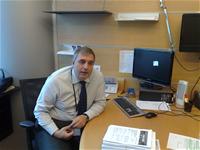 should not forget because it is a long-term one. In this regard we have laid down the basis by finding active, including private, investments in ports, airports, road infrastructure, railway transport. This cannot be realised in 2 or 3 years. These are long-term projects which depend, to a large extent, on Bulgaria only. Of course, it is important how each country is developing its infrastructure but if Bulgaria distributes well its efforts, I'm confident that in 1 decade we will be a country with one of the best infrastructures in this part of Europe.
should not forget because it is a long-term one. In this regard we have laid down the basis by finding active, including private, investments in ports, airports, road infrastructure, railway transport. This cannot be realised in 2 or 3 years. These are long-term projects which depend, to a large extent, on Bulgaria only. Of course, it is important how each country is developing its infrastructure but if Bulgaria distributes well its efforts, I'm confident that in 1 decade we will be a country with one of the best infrastructures in this part of Europe.
There is an enormous Japanese investment, it is a loan - the last loan we took from Japan with very good conditions for the ports of Varna and Burgas for a fivefold increase of the cargo capacity of those ports. We also have money to increase the speed in railway transport - the target is to reach 160 km average speed, including for the cargo transportation through Bulgaria. But in the field of energy I would way that we have a window opportunity which opens and if you don't use that opportunity, the window closes. And while there is no deadline for the ports of Varna and Burgas, if we do not take part in some of the large energy projects, they will just pass us by. It is very important right now that we talk about energy mainly.
euinside: In this regard, the constant talking that the EU should have common energy policy - I think recently the European Parliament passed a resolution on the matter - is it possible that this can happen soon and is it possible that such a policy could rearrange our priorities?
IVAYLO KALFIN: Yes, last week the Parliament voted on such a resolution. By the way one of the depositors of the document was my fellow MEP Kristiyan Vigenin. The question is can we imagine what common energy policy is. Someone might say that there already is common energy policy but another - that there is not such a thing. Some years ago there were discussions about common energy policy but then the perception was explicitly about nuclear power. This issue was closed because of the disagreements in that period and was renewed again with Bulgaria joining the EU. But it was renewed in another aspect - now we're talking about diversification of routes, diversification of suppliers, for production of energy from renewable energy sources which give more independence.
We are also talking about security of energy infrastructure and that is why NATO is also involved. Today the approach and the aspects are totally different. The target is the energy that is turning more and more into a geostrategic issues and politics is being made upon it by the large states, to be structured in such a way that to help Europe not to depend on 1 or 2 suppliers but to have enough energy so as to develop its economies and to use the market liberal conditions for better prices. This is the final target. Bulgaria can and should find a very solid place in such a Europe.
euinside: Therefore, the discussion in our country in the context of the new climate change agreement, a large part of which are exactly the renewables and, also, a very good model for financing energy projects it the cap-and-trade scheme. But at home, it seems like we're not talking quite a lot about this and it is not quite clear whether we have benefited from the cap-and-trade scheme?
IVAYLO KALFIN: This is true, regretfully. And I think that one of the things that have to be done asap is energy stock exchange in Bulgaria. In the previous government I chaired a working group on the development of different models of an energy stock exchange. We saw the experiences in several countries and we came to the conclusion that the best is the one in Germany - the European energy stock exchange in Dresden. On such an exchange we could trade energy resources, electricity and emissions certificates. This is an issue that proved to be very sensitive and I will not hide that in Bulgaria there was very strong opposition to the creation of such a market. I am sure that the energy stock exchange is a thing that should be done. It is an element of a market we need to create.
euinside: Where did the opposition come from?
IVAYLO KALFIN: The opposition came mainly from the monopolists who don't like the open market idea. Regarding the certificates trade this was the Ministry of Environment and Waters which had imagined that it would control the trade - the less this happens, the better. And regarding the trade with electricity it was the National Electricity Company which secures technically the trade itself. Therefore, if you buy electricity from the thermo-electric power station "Varna", you will get the electricity from a Sofia power station - no one will deliver it to you directly from Varna. This company organizes this type of clearing. But this is not a market, this is not a stock exchange, this is a state owned enterprise.
The company can be included as one of the shareholders of such a stock exchange. Our idea was, the same we did with the stock exchange in Bulgaria, to create that energy stock exchange with a majority of shares for the state so that the exchange could be established and to start functioning and, afterwords, the state to retreat so that the other participants could continue managing it. This is the point where the opposition appeared. I admit that I have not succeeded and the people I worked with - we failed, but this is something that has to happen.
And regarding the renewables, we should not overestimate their capabilities. Bulgaria has targets, within the EU which has set a target by 2020 20% of the production of electricity to come from renewables. This common target is divided into targets for each country - for Bulgaria this is 16%. So far we have something like 10-11% because most of the energy comes from water and it depends on the year, the rains but it could reach 12%. Awe are not that far from the target of 16%. But the problem is that the resources are limited. We cannot stick wind turbines all over the country, not only because it will not be beautiful but also because there is not enough wind for them. There is an interest from big investors to build wind parks and one such large investment is of the Japanese Mitsubishi. There are also American and Italian companies that work quite actively on such projects.
However, we cannot overestimate the opportunities. We can think of large projects in the future. There is one we have discussed with Romania but it is so big that it will take a lot of time to be built - this is about a large water-power system on the Danube river to be used for the production of energy from water. But this project is related to the shipping on the Danube river, with environment issues and we need such an approach so that all balances be kept intact. That is why this project is a distant perspective. What we have so far as opportunities are wind parks, more projects for solar energy - but we have to be aware that those projects are expensive and the investments are slow. The state stimulates very actively such projects - even now the electricity they generate is very expensive. But we should not expect that Bulgaria will turn into a country that will live by wind or solar energy.
euinside: Now, about foreign policy. I don't want to give any estimations, but it seems like the new foreign minister is lacking ideas and it seems like we now don't have foreign policy. Are there any directions she needs to follow?
IVAYLO KALFIN: No, I am the last person that would criticize the new foreign minister. Furthermore, she has worked for only 2 months now and in foreign policy things happen slowly. The foreign policy is one of the areas where it is difficult to develop a priority and to complete it within a mandate and that is why I sincerely hope, I have spoken to Mrs. Zheleva, Bulgaria to continue the same logic - which is this European policy and within NATO, where Bulgaria can actually make a contribution. Not to follow other countries but to have a leading role in developing that policy. And those areas are, indisputably the Western Balkans, the Black Sea cooperation, the relations with the Caucasus countries, the states from the former USSR, with Russia, the relations with Central Asia. These are strategic regions, very important for Europe and where Bulgaria has geographic vicinity with and knowledge. I could add that Bulgaria is also the only country that has direct ferry connections with Georgia, Ukraine and since this year with Russia.
This is what we have to use - not only politically but also to develop infrastructure, trade, civil society. I am happy that in the European Parliament now is being established a Parliamentary Assembly with the participation of the 6 countries from the Eastern Partnership - Ukraine, Moldova, Belarus, Georgia, Azerbaijan and Armenia. This will be forum to discuss major issues between the EU and those countries. A chairman of the the Assembly, on behalf of the EU, will be Kristiyan Vigenin.
So, Bulgaria really has a very strong opportunity to define this new structure, to put the main landmarks of the European policy in the region. I think this is what the Bulgarian foreign policy should deal with. Of course, Bulgaria also has to be a loyal partner of NATO and the EU, to participate fully in the operations and not to try and escape from responsibility.
euinside: And what is the situation in the European Parliament now? It became quite colourful after the elections in June? Are there many differences, disputes?
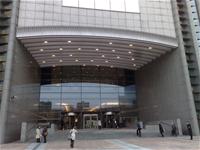 IVAYLO KALFIN: The difference between the European parliament and the national parliament for me is a new experience, although I know well the European Institution but it is different to see them from the inside. The EP works differently because quite often we look for consent among the major political groups without forming an alliance or a coalition which is what we see in our country - the formation of long-term relations between parties. On major issues, the large groups like the People's party, the Socialists, the Liberals also have a large group and the Greens as well, we are trying to find a common decision, to reach a consensus on what's important for Europe.
IVAYLO KALFIN: The difference between the European parliament and the national parliament for me is a new experience, although I know well the European Institution but it is different to see them from the inside. The EP works differently because quite often we look for consent among the major political groups without forming an alliance or a coalition which is what we see in our country - the formation of long-term relations between parties. On major issues, the large groups like the People's party, the Socialists, the Liberals also have a large group and the Greens as well, we are trying to find a common decision, to reach a consensus on what's important for Europe.
Here much more important is the European interest. Not that the party interests are not important, but everybody appreciates the fact that we think predominantly of the European interest. For example, when the different positions were distributed - the committees, the different posts, chairmen, deputy chairmen, we did this together. The second part of the mandate of the president of the Parliament, as in the previous one, will be given to a Socialist, no matter that the Socialists are the second group. In general, there is this spirit and conscience of a European priority. And this is one of the differences from the national Assemblies where we have a majority, we have an opposition and things are crystal clear. Another difference is the selection of members of the European Commission.
The Commission, unlike a national government elected by parliament, is supposed to have European priorities - it needs to protect the interest of the Union itself. It has representatives from different political parties and it is normal to have the support not only of the majority in the European Parliament but of all political groups. So, here we're not saying that the Commission is a government of the majority as it is in national parliaments. All these peculiarities, combined with the party interests, give the common interest. Why are we all here in the European Parliament? To protect the interests of the European citizens.
And I think that it is very important, although during the campaign some in Bulgaria did not accept it, that we can protect the national interest as well, the Bulgarian interest in the framework of the common European interest. We do not protect the European interest in general. We have been elected in Bulgaria - the Bulgarians have specific questions, specific problems. The EU has specific mechanisms to respond to those problems and that is what the European politics is all about - the citizens to understand that they are being protected by the Union.
euinside: That is correct but, still, people continue to draw back themselves from this process - from the European and the national altogether. Let's take the last example - the elections in Germany - many people said: "We do not trust these people" and much less people go to vote, not matter if it is national or European elections.
IVAYLO KALFIN: Well, in Bulgaria it was not exactly like this - the last elections gave territory to new people and the voters said - we trust these people even if we do not know them at all. I have difficulties to name 10 or 15 of the famous parliamentarians. I am certain that we will learn them by name. This is what democracy is all about - when you don't like somebody, you elect another one. The question is if you don't like the system. But, then, what do we prefer? Another system?
euinside: No, the question is not whether we like or dislike somebody but that the decisions, no matter who takes them, should have continuity. Let's take the example of Bulgaria which is very contrast - there is a constant change of priorities, there are more and more new ideas but afterwords it appears, during the process of governing, that nothing can be changed. Aren't those signals against the background of the challenges we all face, the thing that repulses people?
IVAYLO KALFIN: But those things are invoked by the voting of the people. I mean that the voters in Bulgaria have decided to elect totally new people to govern them, taking that risk without worrying that they don't know all of the politicians, don't know anything about them, etc. And they put them to govern. Now, one of the things that I do not accept in general is the denial of everything. We have seen this before - everything done so far is bad and now we, good for us to be elected, will start everything anew and everything will be nice. They will work a little bit and they will see that this is not true, that for the past 20 years Bulgaria is developing and is going on a path. And if we have succeeded in some areas it is namely because there is continuity in politics. The moment when a government, if looked from outside, starts to change its priorities, then the next comes and does the same - we will not have results or, at least, everything will happen very slowly.
That is why Bulgaria was lagging behind the countries from Eastern Europe. Thanks God though, we are in the lead of the countries in the Balkans. I would say now that it is important who are we comparing to. So, if we want to have continuity and stability, everyone that comes to power should put his own priorities, to review the previous ones and it is not obligatory to erase everything done so far. But, again, this is the result of people's vote. I cannot judge the Bulgarian voter for electing a government to which I have a lot of remarks and pretenses, but it was elected and it will work.
euinside: I see that you have a booklet "Turkey in Europe" - was there some fear in Bulgaria for the last several years to talk about Turkey in Europe?
IVAYLO KALFIN: Yes, there was. No, it was more something like guilt. This is a booklet, 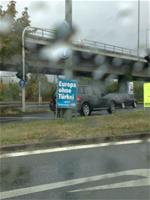 published in September, brand new, by the so called Independent Committee on Turkey. It is written by politicians, intellectuals who are interested in the question: "How possible it is Turkey to join the EU?". It was sent to me with a letter by Marti Ahtisaari, who chairs that Committee. I do not agree with everything that is written here. Those are independent politicians who, to put it shortly, say that Turkey should as soon as possible join the EU. I think, that in the public perception we have some uneasiness to talk about Turkey's membership to the Union.
published in September, brand new, by the so called Independent Committee on Turkey. It is written by politicians, intellectuals who are interested in the question: "How possible it is Turkey to join the EU?". It was sent to me with a letter by Marti Ahtisaari, who chairs that Committee. I do not agree with everything that is written here. Those are independent politicians who, to put it shortly, say that Turkey should as soon as possible join the EU. I think, that in the public perception we have some uneasiness to talk about Turkey's membership to the Union.
And I think that things are very clear - Turkey is a secular state, Muslim but secular. We are not interested our neighbour, Turkey is an enormous neighbour compared to the dimensions of Bulgaria, to be an Islamic state, to be a producer of Islamic fundamentalism. This is extremely dangerous for Bulgaria to have such a neighbour. Our interest is Turkey to move towards the European values, which it states it is moving to. So, the process of negotiations of Turkey with the EU is something which is very useful and where there are obvious results, the country needs to be encouraged.
What is unacceptable for Bulgaria, though, is Turkey to override the rules or to impose its own rules just because it is a big state. Each large country, I think of Poland as well, tends to say: "No, no, there are rules but we are so big that we have our own pretenses". This should not happen. If Turkey, I think its European perspective should not be taken away, abides to the rules and really becomes a European country, then it is OK. We should not be worried about Turkey, it should become a country like any other - no matter if we call it Turkey or Spain, or the Netherlands.
euinside: But have you discussed this position with your European colleagues? For example, France is quite against Turkish membership.
IVAYLO KALFIN: France is against it because the logic of president Sarkozy, and by the way with the election results in Germany I think that there will be some steps behind with regard to the enthusiasm towards Turkey, but president Sarkozy's logic is that there is a mechanism which always produces results. Once Turkey had started the negotiations, it will one they complete them and will become a member. But let's remember that Turkey is a candidate for membership for 40 years.
It is in a process for candidacy for membership for sop many years and I don't think that we should put a deadline just because it entered this mechanism. And I would not agree with Sarkozy's opinion in no way. Because for me it is very important Turkey to be stimulated during this long procedure, because we can imagine that for so many years the political and public motivation is not at the highest level. If we are knocking on a closed door for 40-50 years and it remains closed, I don't know how long one should continue to knock.
euinside: Exactly, because now we see some fatigue in Turkey from this process and from the diverse talking.
IVAYLO KALFIN: I wouldn't say that Turkey has lost its enthusiasm for European membership. It is true that on a political level this is used as an argument, including the prime minister says "we will not wait forever", this is normal. Every politician thinks within his term, thinks what he can do while in power. But I think that Turkey realises that it is better for it to move towards the EU.
By the way, for the past several years, the Turkish government has achieved a lot - not only in terms of internal reforms, but they are also trying actively to become some kind of a mediator in the dialogue with the Muslim countries - between Muslim countries and Europe, between Muslim countries and the US, in internal conflicts in Muslim countries. They were very active in Syria and Lebanon, also in Iraq which is their neighbour. In short - Turkey is trying for the last several years to establish the face of a country which is Muslim but which has apprehended the policies, the values of the Western world, which is positive I think.
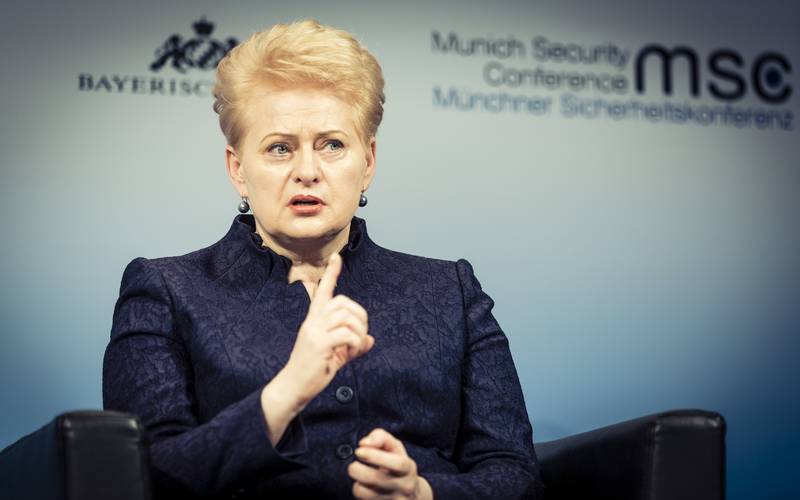 Dalia Grybauskaite | © MSC/Koerner
Dalia Grybauskaite | © MSC/Koerner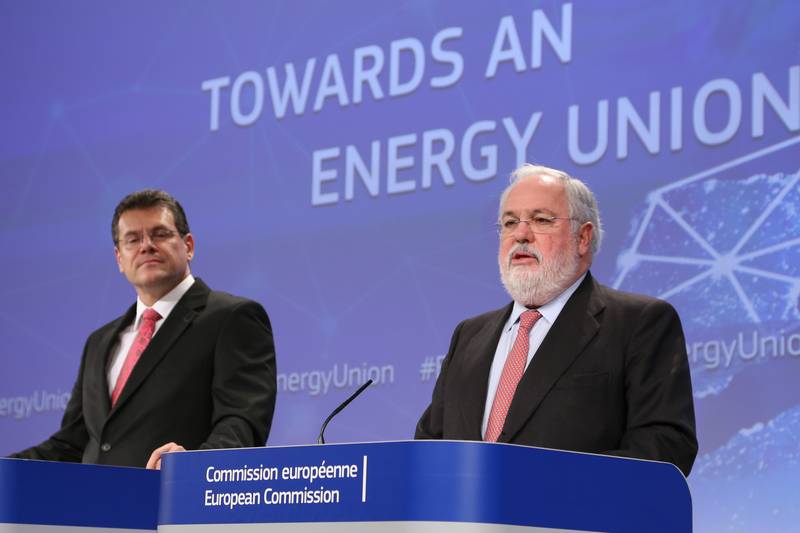 Maros Sefcovic, Miguel Arias Canete | © European Commission
Maros Sefcovic, Miguel Arias Canete | © European Commission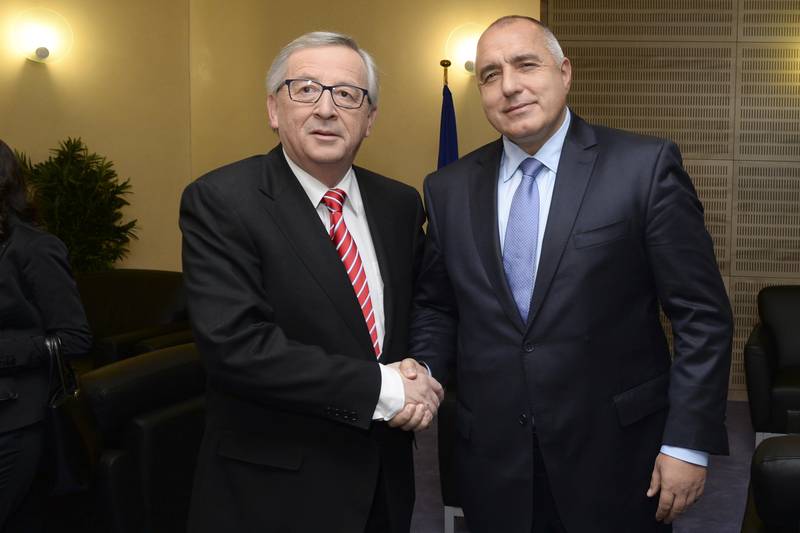 Jean-Claude Juncker, Boyko Borissov | © European Commission
Jean-Claude Juncker, Boyko Borissov | © European Commission